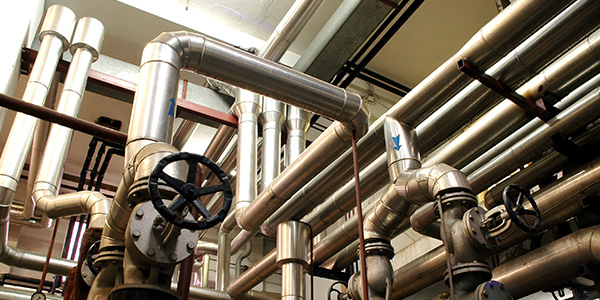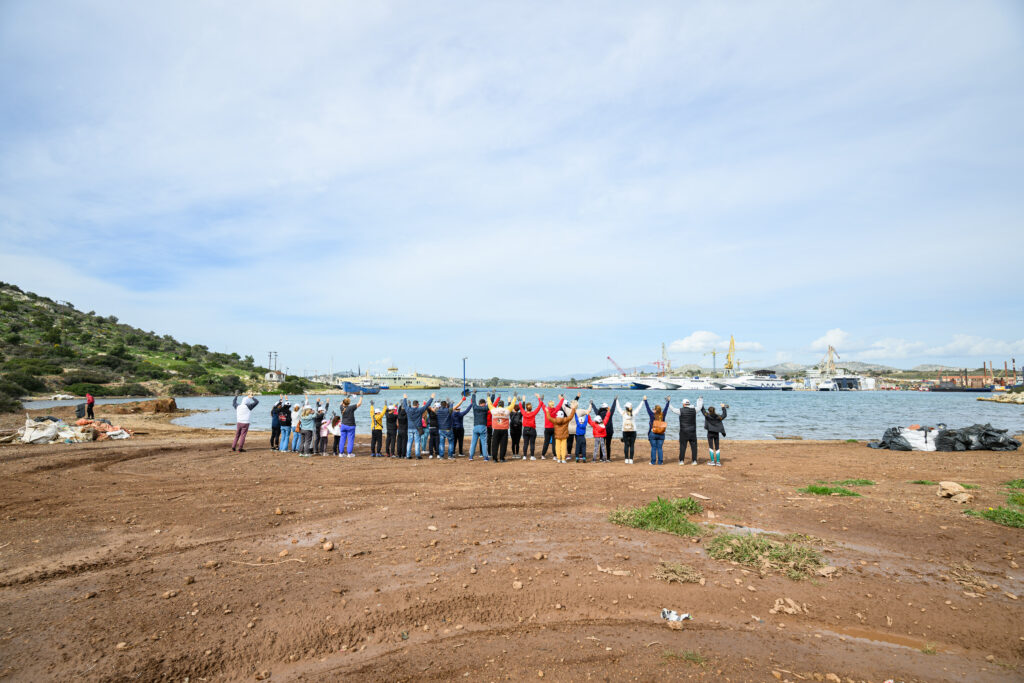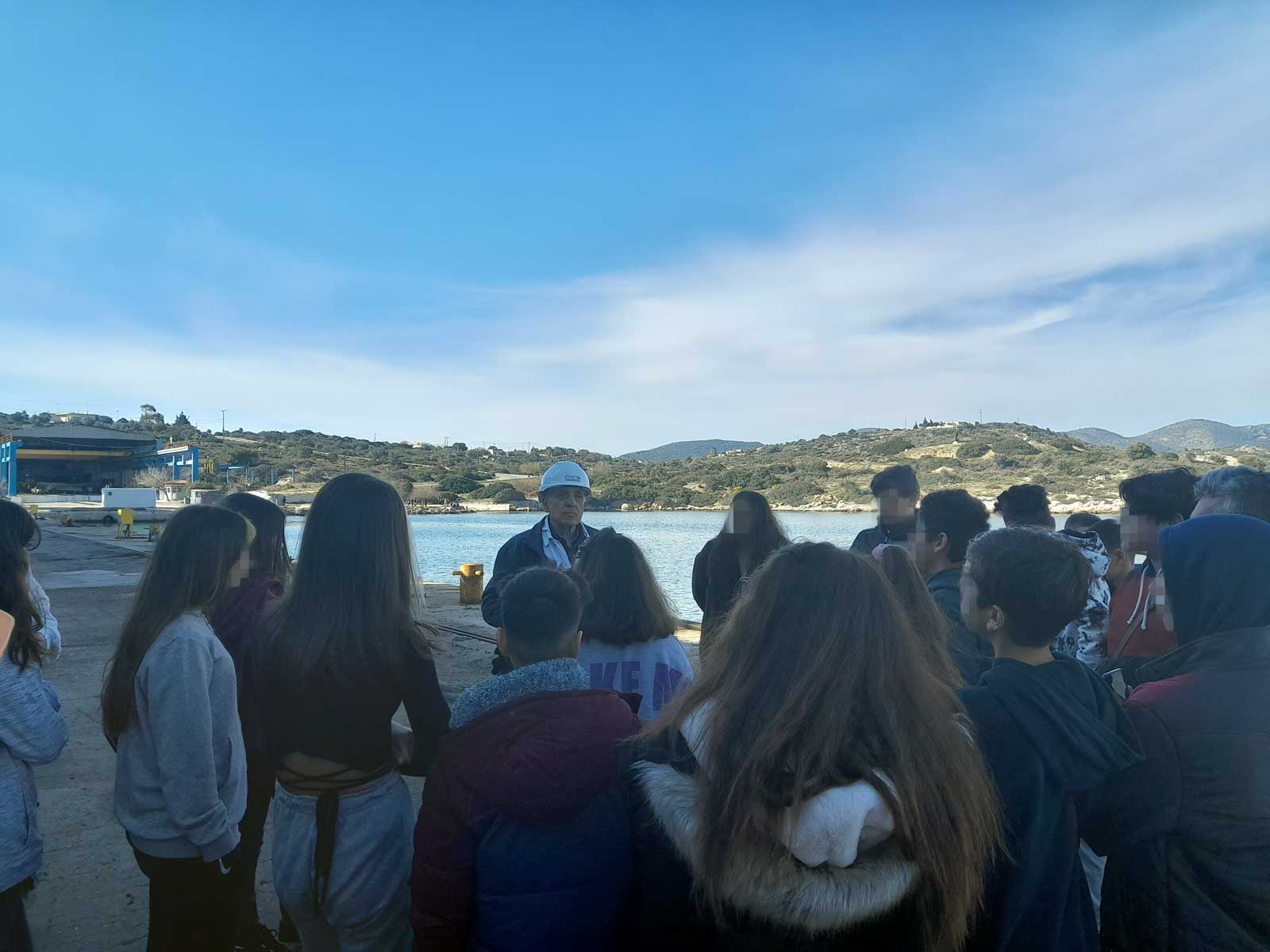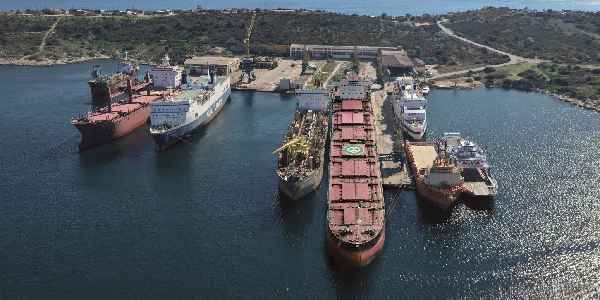For any vessel, sound operation depends on a number of components being successfully assembled. One area of operation is the ship’s piping system. That includes all the fluids on board the vessel irrespective of their use (cooling, ballast or cargo, thrust power etc.) and location (deck, engine, accommodation).
Like any system, fluid handling pipes and fittings need to be replaced at some point. As opposed to when building a new ship where engineering specs are clear in selecting the ideal piping material, deciding on what type of pipe material is required to replace for your vessel can be a more tedious task.
With a number of pipe materials available to choose from when installing or building a fluid handling system for your vessel, selection criteria must involve industry class and type of material handled. Pipes are silent workers, and many control systems rely on them to function. One of the most crucial decisions you will make during this process is the type of pipe material you require to transport fluid or allow air to enter or leave a space by which many control systems operate. Making this choice improperly could compromise both the quality of your product and employee safety.
Considering Steel or Glass Reinforced Plastic (GRP) Piping System for Your Ship?
Below are a few tips that may help you choose the right pipe material for your ship:
MATERIAL TYPES TO ASSESS
The performance of a vessel’s system depends on material capacity to endure high heat and pressure for extended periods of time. Metal piping systems, for decades now have been the industry standard to most applications. High heat and pressure requirements in these environments can be met by alloys like stainless steel, galvanized steel and others that are deemed strong and resilient in such conditions.
Stainless steel: Unlike other materials, stainless steel does not rust or corrode as quickly. It offers a variety of alloys, all of which contribute to the formation of a protective oxide layer on the surface, which gives a natural resistance to most corrosion. This layer is strong and resilient in nature, making it a perfect material choice for water pipes that can also handle some chemicals and oils.
Galvanized steel: This pipe material is suitable for short-term saltwater projects, as it does not rust. However, when exposed for a prolonged period both to salt and water, it will corrode. It is also important to keep in mind that galvanized steel frequently corrodes from the inside out, making it especially difficult to detect.
Carbon steel: Despite the fact that carbon steel is excellent for high-temperature fluids, it corrodes quickly when exposed to a lot of moisture, chemicals and acids.
COST AND EASE OF MAINTENANCE
Certain types of ship piping material are simpler to maintain than others, just like flooring, countertops and other solid surfaces. Ask yourself, how often you can realistically clean your ship’s piping system, as this can become a very time-consuming task depending on size and complexity of the vessel. Choosing low maintenance cost piping material like GRP should be a top priority if you are unable to clean your vessels’ pipes frequently.
GRP material is commonly used for ballast water pipes in the shipping industry. There have been no visible signs of wear and tear, corrosion, condensation, or cracking in GRP piping installations. GRP pipes have the advantage of not requiring welding or specialized equipment for installation.
Fabrication and installation of metallic pipes involves high costs if you consider pre-installation engineering, which includes the welding, mounting of support hangers and attaching of valves.
On the other hand, because GRP piping requires to be maintained and repaired less frequently, using it could result in significant life-cycle cost savings. Nowadays, GRP pipes are gradually replacing steel in a number of applications, including fire and water services.
Kynosoura Dockyard offers a fully extensive range of steel and GRP pipes and fittings tailor made at the highest quality, for the shipbuilding industry. Our systems combine the renowned benefits of composite materials—chemical resistance, light weight, extremely long lifetime, etc. with a remarkably simple installation process. In addition, we provide a selection of pipes in a variety of sizes and features to meet the needs of your various applications. Our ship piping works and fittings, which are fully prefabricated into spools, are delivered to the shipyard complete with all the accessories like gaskets and locking keys and are prepared for mounting without the need for any laminated or glued joints to be made at the shipyard.
At Kynosoura Dockyard, we provide ship repair and construction services in Salamis, Greece for over 50 years. We work to provide you with high quality and safety standards that are created to meet the demands of the shipping industry on the most cost-effective basis through our shipyard and large pool of experienced labor strategically located in the heart of the Mediterranean.




